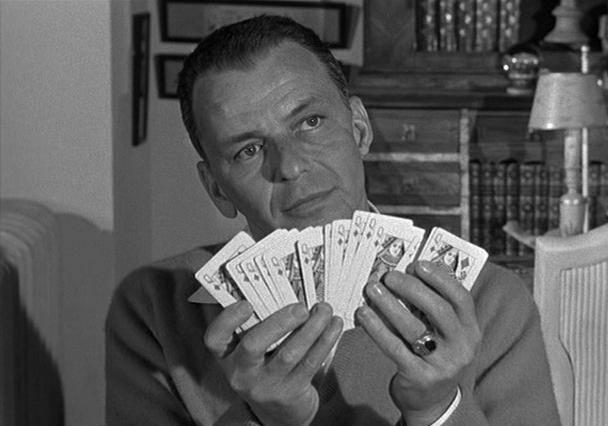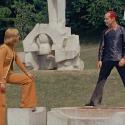“A frivolous piece of hysteria. I liked it in a confused sort of way but when it was all over I must confess I couldn’t really see the point.” So ran the Daily Express review of The Manchurian Candidate on 5 November 1962. Other fascinating newspaper appraisals quoted in the booklet of this new Blu-ray/DVD edition of John Frankenheimer’s Cold War-era drama detect the shadow of Hitchcock looming over the film. Despite also mentioning Hitchcock, the Evening Standard’s Alexander Walker was less equivocal, saying it was “a fiendishly clever spy thriller that might have been devised specifically to scare the stars and stripes off Old Glory”. The evaluation still rings true.
Whatever the Express had thought, the point was clear. Set during the Korean War, The Manchurian Candidate was explicitly about an America where Senator Joe McCarthy led America’s Reds-under-the-bed war on Communism. The film’s buffoonish Senator Iselin (James Gregory) was a McCarthy cipher. But the film went further: it was also about covert mind-control and actual, rather than McCarthyite imagined or trumped-up, infiltration into the state and its instruments. With its always-present sense of threat, it was indeed Hitchcockian and Janet Leigh, one of Hitchcock’s favourites, was one if its stars. But Frankenheimer and George Axelrod’s adaptation of Richard Condon’s novel was more a state-of-the nation summation and more solidly thriller-like than anything Hitchcock had directed. Watching it now shows just how fatuous Jonathan Demme’s 2004 remake was.
As well as Leigh, it starred a robust Frank Sinatra as Major Bennett Marco, an intense Laurence Harvey as Raymond Shaw and Angela Lansbury in towering form as Senator Iselin’s monstrous wife Eleanor. Aspects jar, though. Sinatra and Leigh’s first meeting is a non-sequitur. Harvey makes no attempt at an American accent, and his drunken set-piece borders on vaudeville. Sinatra’s tough-guy fight scene is cartoonish. Nonetheless, The Manchurian Candidate raises its questions commandingly and is still powerful.
This is an exemplary presentation. The booklet details the context, going into the realities of mind-control and the issues – real and rumoured – surrounding the film’s history. The many visual extras supplementing a commentary from the director include an intriguing 1988 TV appearance where Frankenheimer and Axelrod are so deferential to Sinatra it’s impossible not to wonder whether mind-control was actually at play.
Overleaf: watch the trailer for The Manchurian Candidate
Watch the trailer for The Manchurian Candidate













Add comment